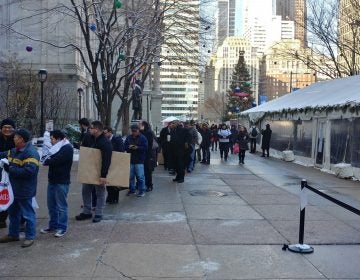Council vote set on bulletproof glass measure dividing Philly community
Community activists have complained for years about people stopping at the beer delis, buying beer or shots of liquor and drinking them in the street.
Listen 3:56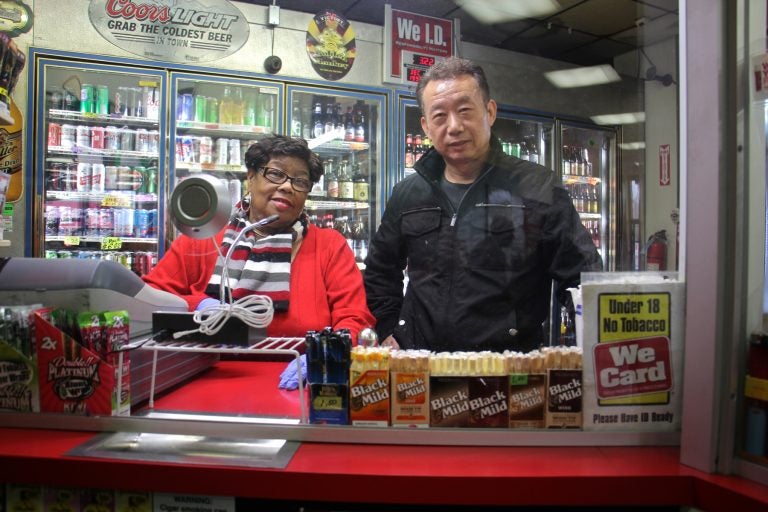
Olney Steak & Beer owner O. J. Yoo stands behind a Plexiglas window with employee Sylvia Combs. (Emma Lee/WHYY)
Michelle Tran has a hard time picturing Wayne Junction Deli without the Plexiglas that separates her from the customers who stream through her doors.
To her, having a bulletproof divider is an absolute necessity.
“There are times where I’m threatened because I ask for ID because they don’t have the ID or they don’t feel like giving me the ID. They say, ‘you’re lucky there’s glass up because I would punch you in the face,’ ” said Tran.
One night a few years ago, before the Plexiglas reached the deli’s ceiling, a man launched himself over a gap in the barrier and robbed the store.
“I’ve got three kids now. Can you imagine if something like that happened to me? Who’s going to take care of my children?” said Tran through tears.
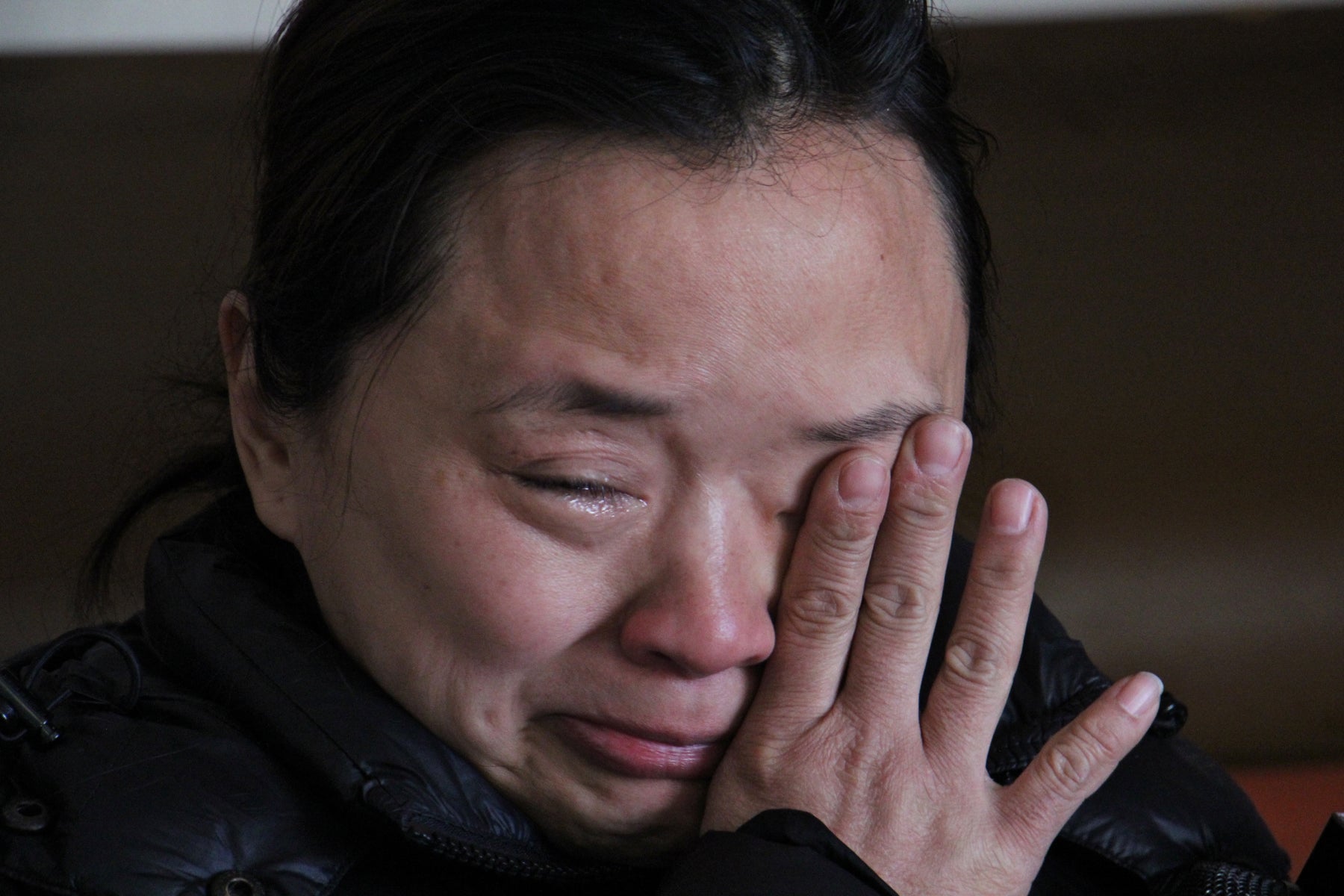
That kind of fear is at the heart of the controversy swirling around a bill set for a final vote in Philadelphia City Council Thursday.
The measure, introduced by City Councilwoman Cindy Bass, could force take-out operations such as Wayne Junction Deli to remove their bulletproof glass in order to obtain a new category of restaurant license that would be required if — as Bass expects — it does pass and becomes law.
The final call on whether these businesses would have to remove their “physical barriers” would be made by the city’s Department of Licenses and Inspections between now and 2021.
Store owners – and the organization that represents them – are still outraged.
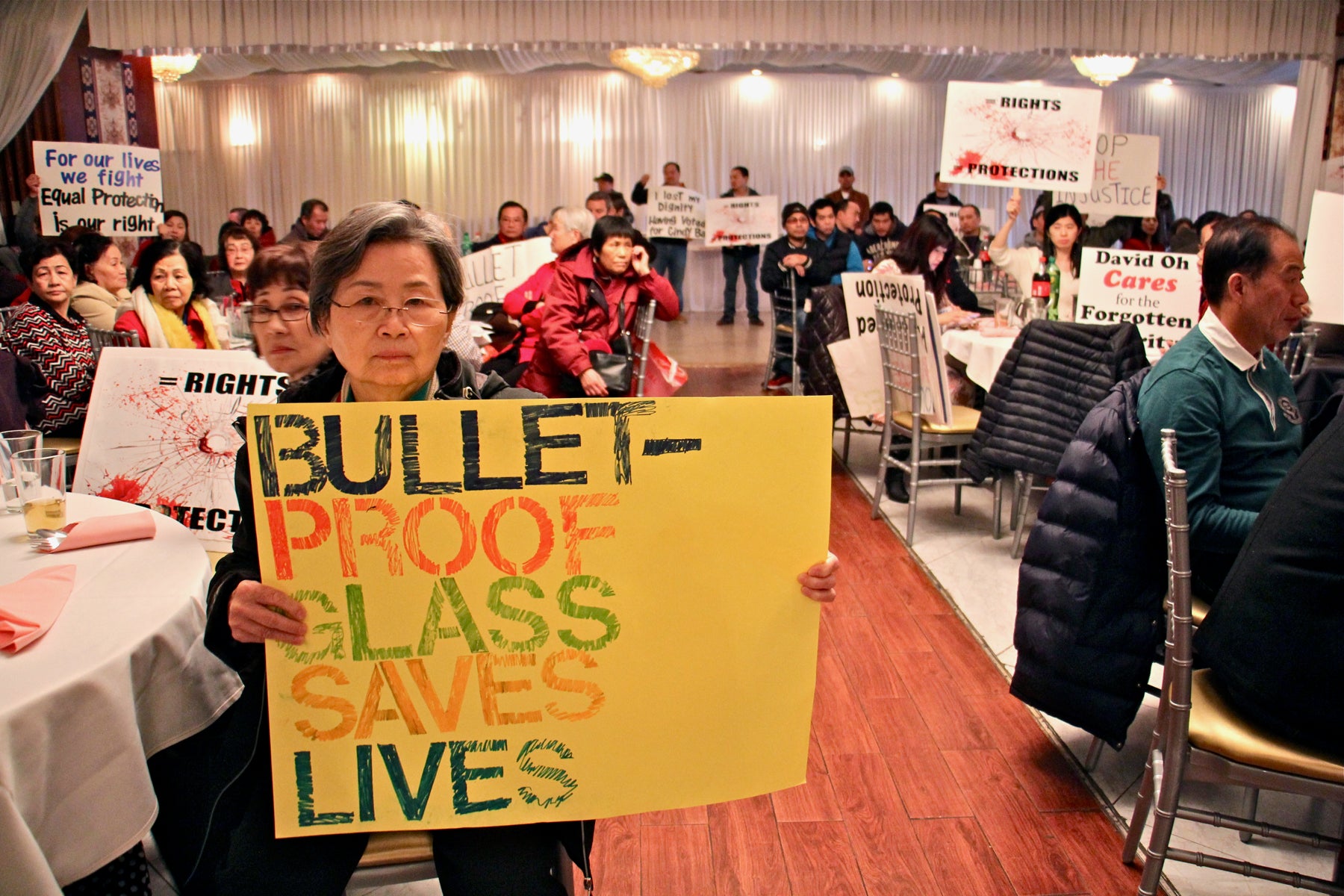
Community activists have complained for years about people stopping at the beer delis, buying beer or shots of liquor and drinking them in the street.
They’ve also railed against beer delis, also called stop-and-gos, for violating the letter of their state restaurant licenses, which require them to have seating and sell food.
But owners say introducing a city law that could require them to take down their bulletproof glass feels particularly personal.
Protection or provocation?
“If the city government, for any reason, they force us to take the bulletproof glass down, we will fight until the end. Over my dead body,” yelled Adam Xu, president of the Asian American Licensed Beverage Association, during a recent protest in South Philadelphia.
Xu’s association counts more than 200 beer delis as members, including Olney Steak & Beer on Broad Street.
Similar to Wayne Junction Deli, the long, bending counter at Olney Steak is encased in bulletproof glass – the real thing.
Shots of liquor are passed through a small window. Beer is placed in a deep drawer that employees push out toward customers standing on the other side of the glass.
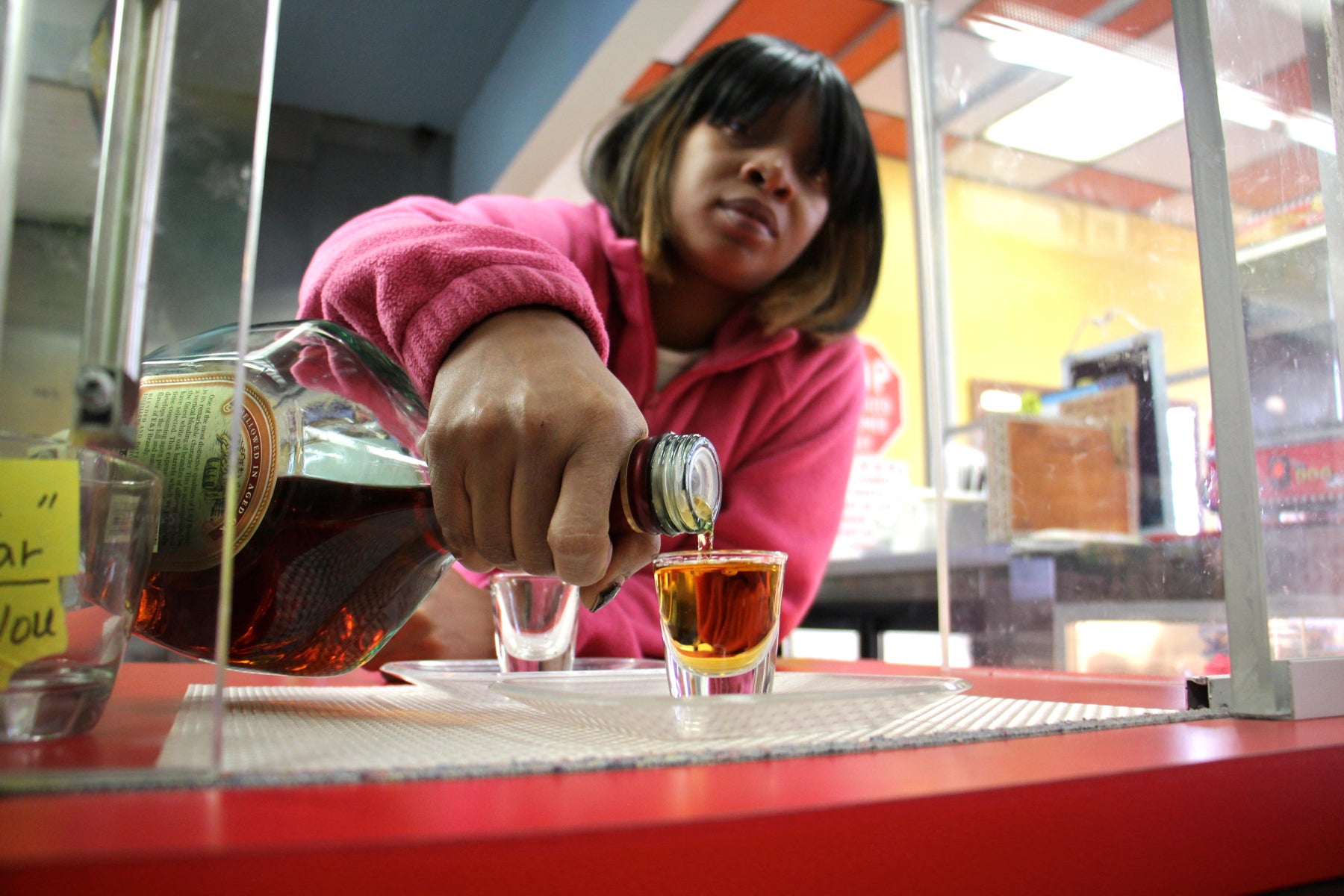
Owner O.J. Yoo said it’s all in the name of safety. Like nearly all of the beer delis in the city, his store is in a low-income, high-crime neighborhood. A neighborhood, he said, that requires that he protect his employees so no one is killed over a can of beer.
“[Bass] sees the problem of bulletproof glass, but my analysis is this: She should focus more on why bulletproof glass went up in the first place,” said Yoo.
Bass sees it the other way, arguing that places like Yoo’s need bulletproof glass because of their business model, not the neighborhood.
“Some of the products that are sold — the things that are happening inside and outside their establishments and the things that I’ve witnessed myself — would lend themselves to a climate that is going to be negative, that’s going to be bringing negative people, negative actions,” said Bass.

Pennsylvania Gov. Tom Wolf recently signed a bill that makes it easier for authorities to suspend the liquor licenses held by beer delis, but Bass wants the city to have power, too.
She said she doesn’t want anyone to get hurt, she just wants these businesses to be better neighbors.
“I describe it as a modern-day pusher, that is what I think these restaurants and establishments are,” said Bass.
Mayor Jim Kenney said he would sign the measure into law if it reaches his desk.
WHYY is your source for fact-based, in-depth journalism and information. As a nonprofit organization, we rely on financial support from readers like you. Please give today.




